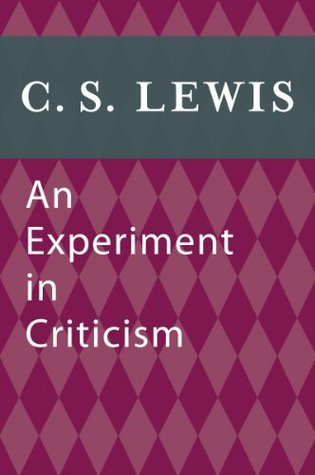More on this book
Community
Kindle Notes & Highlights
The sooner we cease to be as fickle, as boastful, as jealous, as cruel, as ignorant, and as easily frightened as most children are, the better for us and for our neighbours. But who in his senses would not keep, if he could, that tireless curiosity, that intensity of imagination, that facility of suspending disbelief, that unspoiled appetite, that readiness to wonder, to pity, and to admire? The process of growing up is to be valued for what we gain, not for what we lose. Not to acquire a taste for the realistic is childish in the bad sense; to have lost the taste for marvels and adventures is
...more
Tess liked this
Why do we hear so much about the defects of immaturity and so little about those of senility? When we accuse a work of infantilism we must, therefore, be careful what we mean.
The best safeguard against bad literature is a full experience of good; just as a real and affectionate acquaintance with honest people gives a better protection against rogues than a habitual distrust of everyone.
I can’t get out of the dungeon I shall at least look out through the bars. It is better than sinking back on the straw in the darkest corner.
In my experience a good commentator or a good literary historian is more likely, without a word of praise or blame, to set us right. And so is an independent rereading in a happy hour. If we have to choose, it is always better to read Chaucer again than to read a new criticism of him.
Literary experience heals the wound, without undermining the privilege, of individuality. There are mass emotions which heal the wound; but they destroy the privilege. In them our separate selves are pooled and we sink back into sub-individuality. But in reading great literature I become a thousand men and yet remain myself. Like the night sky in the Greek poem, I see with a myriad eyes, but it is still I who see. Here, as in worship, in love, in moral action, and in knowing, I transcend myself; and am never more myself than when I do.


